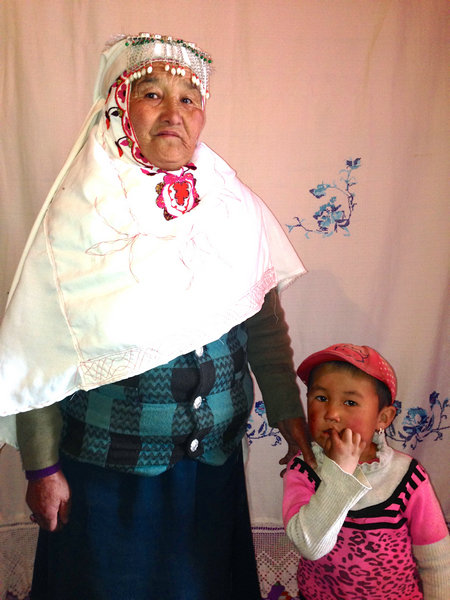Pasture way of treating guests
By Erik Nilsson In Ili, Xinjiang ( China Daily ) Updated: 2015-06-06 08:05:39
 |
|
A Kazakh woman in Zhaosu dresses in their traditional custom at home. [Photo By Erik Nilsson / China Daily] |
In other words, shepherding is in some ways easier than policing.
That said, the prefecture's roads' congestion is more likely to come from tangles of hooves than wheels at any time of year.
Relationships with livestock change after they're beheaded.
Kazakh nomads have for millennia passed summers playing buzkashi - basically polo with a decapitated sheep carcass. (The decapitation again honors Islamic customs of slaughter.)
Two teams of horseback riders line up on either side of a field and - at the word "go!" - strike forward at lightning speed with a thunder of hooves to grab the roughly 30-kilogram carcass to hurl it into a goal.
Once the corpse is seized, others aggressively claw to try and snatch it away. It's a mosh pit of grabbing and jabbing horses and hands.
"It's hard," Nursuntan says.
"You have to haul a heavy sheep with one arm."
Clans take turns slaughtering and often stuff hides rather than play with the corpse packed with everything naturally inside the hide, to share and cut costs. But these are torn to tatters after a few sessions.
"There's not much else to do on the grassland," Nursuntan says.
"It's how we pass time."
Our lunch the day before, when my courteous intentions were sullied by how I washed my hands, was of horse intestines with 76-year-old Hasan Wormanbek, one of about 100 men in Zhaosu's Sarkuobu village who hunt with golden eagles.
He says the wintertime mountainside hunting sessions keep him spry.
|
|
|
|
|
|
|
|

























 Raymond Zhou:
Raymond Zhou: Pauline D Loh:
Pauline D Loh: Hot Pot
Hot Pot Eco China
Eco China China Dream
China Dream China Face
China Face






